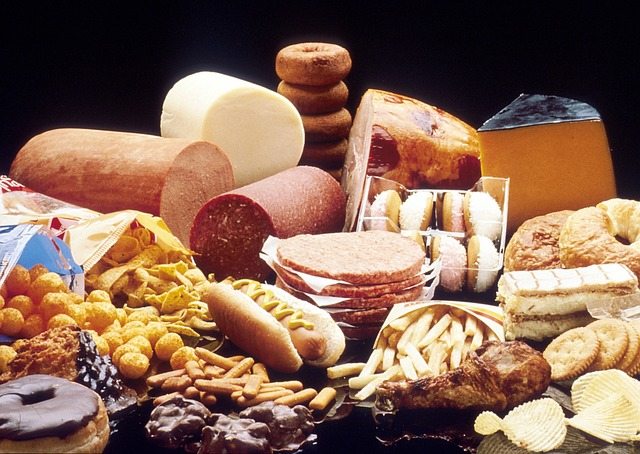
The military diet is intended to promote weight loss and improved living. It places a focus on consuming nutritious foods and low-calorie meals. For those who are not vegetarians or vegans, it also raises several red flags. Everybody should not follow the military diet. It differs significantly from other vegan and vegetarian eating plans like the Dukan Diet in a few important ways. Although the military’s menu is rigid, you can simply adapt it to your way of living. A Military diet results in an effective method if you are able to complete it.
Popular low-calorie diet The Martial Diet promises rapid and dramatic weight loss in just a few days. Due to its severe rules and potential health hazards, the Martial Diet has encountered controversy and mistrust despite its popularity. However, a lot of people have stated that the diet has produced excellent effects for them. This essay will examine the Military Diet and its results based on scientific facts.
What is a Military Diet?

The Military Diet is a low-calorie diet that typically lasts for three days. It promises fast weight loss results. The specific guidelines and restrictions of the diet include consuming a total of 1,000 to 1,400 calories per day. It depends on gender and body weight.
The diet plan is broken down into three daily meals, with no snacking allowed in between. The meal plan for each day includes specific foods and portions. These foods such as grapefruit, tuna, and eggs promote weight loss. The Military Diet also recommends drinking a lot of water throughout the day.
While the Military Diet may lead to weight loss, it is important to note that it is not a sustainable or balanced diet for long-term weight management. The rapid weight loss promised by the diet is often a result of calorie intake restriction and water weight loss rather than true fat loss. In fact, some individuals may even experience weight gain after completing the Military Diet. Because of a slowed metabolism and increased hunger hormones.
Research on the Military Diet
Research on the effectiveness of the Military Diet is limited and often contradictory. Some studies have found that individuals following the Military Diet results in lost weight. Others found no significant weight loss compared to the control group.
One study found that participants following the Martial Diet lost an average of 4.5 pounds in one week. Another study found no significant difference in weight loss between those following the Military Diet and those following a standard healthy diet.
Limitations and potential biases in the research include small sample sizes. It has a lack of control for physical activity levels, and potential self-reporting bias in dietary intake. Additionally, many studies do not follow up with participants to assess the long-term sustainability or health outcomes of the Martial Diet.
Despite the limited research on the Military Diet, one notable finding is that any weight loss achieved through the diet may not be sustainable or healthy in the long term.
Rapid weight loss through calorie intake restriction can often lead to weight regain. It may have potentially negative health outcomes. Moreover, the Military Diet does not promote a well-rounded or balanced healthy diet. That can lead to nutrient deficiencies and other health issues.
What are the Results of a Military Diet

The popular diet program The Military Diet promises to encourage quick weight loss in three days. The Military Diet has been used successfully by many people to lose weight. The military diet claim that over the course of three days, you can lose an average of 4-5 pounds. Some people have also noticed better body composition. These are two examples of decreased body fat percentage and increased muscular mass.
Individuals who have tried the Martial Diet have varying personal stories to share and testimonies to offer. While some people say they’ve lost a lot of weight and improved their body composition, others haven’t had the same success.
Some people have also mentioned feeling hungry and unsatisfied as a result of the diet plan’s low calorie consumption. Additionally, there are some worries regarding the long-term adverse health repercussions of adhering to the Martial Diet. And weight gain and nutrient deficits are included.
The Military Diet has certain similarities and distinctions when compared to other well-known diets or weight loss techniques. The Martial Diet encourages weight loss by restricting calories, just like other low-calorie diets.
The Military Diet, however, does not advocate a particular macronutrient balance, in contrast to certain other diets. Furthermore, it doesn’t emphasize entire, nutrient-dense foods. This may result in vitamin shortages and other possible health consequences.
The Martial Diet may provide weight loss, but it’s crucial to remember that quick weight loss from calorie intake restriction is frequently not long-term sustainable or healthful. The Military Diet may also cause weight gain once it is finished for certain people.
Military Diet Meal Plan: Day-by-Day
The Military Diet is a strict, low-calorie diet that claims to promote rapid weight loss in just three days. The meal plan consists of specific foods and serving sizes. That means boosting metabolism and promoting fat burning. The military diet results in a huge change in eating habits. Here is a three day Military Diet meal plan:
Day 1
Breakfast
1/2 grapefruit, one slice of toast with two tablespoons of peanut butter, and 1 cup of coffee or tea (unsweetened)
Lunch
1/2 cup of tuna, 1 slice of toast, and 1 cup of coffee or tea (unsweetened)
Dinner
3 ounces of any type of meat (such as chicken or beef), 1 cup of green beans, 1 small apple, and half a banana
Tips: The Military Diet consists of whole foods and avoids processed foods. Make sure to choose high-quality, fresh meat for dinner. For the green beans, half a cup of boiled or steamed green beans can be substituted for 1 cup of raw green beans.
Day 2

Breakfast
1 slice of toast, 1 egg (cooked however you like), and half a banana lunch
Lunch
1 cup of cottage cheese and 5 saltine crackers
Dinner
2 hot dogs (without buns), 1 cup of broccoli, 1/2 cup of carrots, and half a cup of vanilla ice cream
Tips: For lunch, feel free to substitute cottage cheese with an equal serving of cheddar cheese. For dinner, make sure to choose all-beef hot dogs with no added fillers or artificial ingredients. You can add chicken hot dogs too. You can also substitute broccoli with an equal serving of any other cruciferous vegetable. A cup of vanilla ice cream can provide you with a huge source of vitamins A, B-6, B-12, C, D, and E!
Day 3
Breakfast
1 slice of cheddar cheese, 1 small apple, and 5 saltine crackers
Lunch
1 hard-boiled egg and 1 slice of toast
Dinner
1 cup of tuna, half a banana, and 1 cup of vanilla ice cream
Tips: For breakfast, feel free to substitute cheddar cheese with an equal serving of any other type of hard cheese. For lunch, you can substitute the hard-boiled egg with an equal serving of cooked chicken or tofu. Vanilla ice cream contains various vitamins.
The Military Diet is a strict and low-calorie diet that can lead to rapid weight loss in just three days. However, it is important to note that the diet is not sustainable for long-term weight loss or overall health. The meal plan consists of whole foods and avoids processed foods, which is a positive aspect of the diet. However, limited food choices and strict calorie restrictions can lead to nutrient deficiencies and potential negative health outcomes. It is important to consult with a healthcare provider before starting the Military Diet or any other restrictive diet.
Substitutions for the Military Diet
The Military Diet meal plan may seem rigid. To satisfy specific dietary choices or constraints, various replacements are possible.
Here are some ideas for alternative foods that you can have as an alternative to some of the original Military Diet meal options:
Substitutions for hot dogs
Veggie hot dogs or tofu hot dogs for vegetarians or vegans. Grilled chicken or turkey sausage for those who don’t eat beef.
Substitutions for peanut butter
Almond butter or sunflower seed butter for those with peanut allergies or preferences. Hummus or avocado for a non-nut butter option
Substitutions for cottage cheese

Greek yogurt or ricotta cheese for a similar texture and protein content. Silken tofu for a vegan option.
Substitutions for grapefruit
Oranges or mandarins for a similar citrus flavor
Pineapple or papaya for a sweeter tropical twist
It’s important to remember that these substitutions may work for different people’s tastes or dietary limits. They may impact the overall calorie and nutrient content of the meal plan. Before making major changes to the Martial Diet meal plan, consult a healthcare professional or certified dietitian.
Also, people with dietary restrictions or interests can change the Military Diet meal plan to fit their needs. For example, if someone does not eat meat, they can substitute tofu, tempeh, or beans for the animal protein options in the meal plan. If someone does not eat dairy, they can choose non-dairy alternatives for cottage cheese and ice cream.
The Martial Diet can be modified to meet individual needs while adhering to the diet program’s main recommendations. People can create a food plan that fits their lifestyle and goals by making intelligent substitutions and tweaks.
Foods That You Can Eat in a Military Diet Plan
The military follows a very regimented diet. This involves a daily calorie intake of roughly 1,000 to 1,400 calories and a set menu for each meal. There are many different meals that may be consumed while adhering to the Martial Diet Plan, despite its severe appearance. The items listed below are examples of those permitted on a Martial Diet.
Meat: Lean meats like hot dogs, tuna, and chicken are allowed in the military’s calorie-restricted meal plan. These proteins are an important source of nourishment. It can aid in keeping you full and content all day long.
Fruits: Citrus, apples, and bananas are all part of the diet program. The calorie and carbohydrate counts of these fruits are remarkably low. Vitamins and minerals abound in these fruits.
Vegetables: The Martial Diet Plan places a strong emphasis on vegetable intake. For instance, green beans, broccoli, and carrots. Vegetables like these help you feel full for longer because of the fiber and other nutrients they contain. Fiber is an important element for weight loss.
Grains and starches: The Martial Diet program includes grains and starches, including whole wheat bread, saltine crackers, and rice. These meals keep you full while giving you the fuel and nutrition you need.
Dairy: Cottage cheese and moderate portions of vanilla ice cream are allowed on the diet program. Calcium and protein in dairy products are needed.
Foods That You Can Not Eat in a Military Diet Plan

The Military Diet results in losing weight quickly. Certain items not included in the diet program must be avoided if optimal results are to be attained. Foods that are off-limits on a Martial Diet include:
Sugar and sweeteners: The Martial Diet Program strictly prohibits adding sugars and other sweets. This implies you must avoid all sources of sugar. Sweeteners like honey, maple syrup, and stevia are included in this category.
High-fat foods: The diet program has an emphasis on low-fat and lean meats. It implies avoiding high-fat meals at all costs. Particularly fatty foods, such as fried dishes, high-fat dairy items, and fatty meats.
Processed foods: Foods that have been altered in any way, shape, or form are strictly forbidden under the Martial Diet program. This implies you should stay away from anything processed. That includes things like lunch meats, veggies, and snacks that come in packages.
High-calorie drinks: Calorie-dense beverages: water is recommended throughout the diet program. This means passing on sugary beverages like soda, juice, and energy drinks.
Alcohol: The Martial Diet Plan has a zero-tolerance policy for alcoholic beverages. It’s calorie dense, therefore it can get in the way of your weight loss efforts.
The Pros and Cons of the Military Diet
The Martial Diet involves strict calorie restrictions for three days. While the diet has gained popularity due to its potential to produce quick results, it also comes with its own set of pros and cons. Here’s a look at the pros and cons of the Martial Diet.
Pros
Rapid weight loss: The Martial Diet is known for its ability to produce quick results. Followers of the diet claim to have lost up to 10 pounds in a week.
Convenience: The Martial Diet is relatively easy to follow. It provides a specific meal plan for each of the three days. This eliminates the need for meal planning and makes it easy to stick to.
Cost-effective: The Martial Diet consists of simple, whole foods. That is easy to find and typically costs less than processed foods or special diet foods.
No special equipment required: Unlike other diet programs requiring specific equipment or supplements, the Martial Diet can be followed using only basic kitchen equipment.
Cons
Lack of sustainability: The Martial Diet is not intended to be a long-term diet program. It may be challenging to maintain the weight loss achieved through the diet once you return to your regular eating habits.
Limited food options: The diet program is highly restrictive and limits food choices. That makes it difficult for some individuals to follow, especially if they have dietary restrictions or preferences.
Risk of nutrient deficiencies: The Martial Diet is low in calories and may not provide enough nutrients to sustain proper bodily function. Following the diet plan for more than three days can increase the risk of nutrient deficiencies.
Potential for weight gain: While the diet program may lead to weight loss, it also has the potential to lead to gain weight. The sudden shift in caloric intake may cause the body to go into starvation mode, causing it to store fat and slow down metabolism.
Differences Between Military Diet and Other Diets

The first major difference between the Martial Diet and other diets is that there is little scientific evidence to back it up. It relies on the premise that you can lose weight with this one-size-fits-all diet. While this is true for some people, it’s not sustainable in the long run. The diet is difficult to stick to, and it may even lead to mood disorders and disordered eating. It also doesn’t provide a maintenance plan.
The Martial Diet is not a permanent solution to weight loss. It requires strict adherence to the plan for only a few days, which makes it difficult to maintain a healthy lifestyle afterward. It doesn’t promote habit changes, so any weight you lose on this diet will return once you return to your usual eating habits. Instead, the Martial Diet program encourages weight loss by changing your lifestyle and setting realistic goals. If you’re serious about losing weight, try it out before you invest too much time in it.
Another difference with the Martial Diet is its lack of vegetables and fresh fruits. Because the diet is so low in fruits and vegetables, you’ll be missing out on many important micronutrients that your body needs to function properly. For this reason, nutritionists recommend that you stay away from the Martial Diet. In fact, most people who follow it lose weight much faster than they would on a conventional diet. It doesn’t promote a healthy lifestyle.
While the Martial Diet does not promote any specific type of diet, it does not include the most common foods that are commonly consumed in the United States. This is because the military diet does not take into account factors such as coexisting medical conditions, medications, and other factors. Therefore, it is important to consider the effects of all these things before committing to this plan. When you go on the military diet, it is recommended that you have a full knowledge of the foods you eat.
The Martial Diet has two phases. The first phase involves a 1,000-calorie menu plan. The second phase involves odd pairings of food. For example, ribeye steak and raw banana are not considered “chemically compatible” – meaning that they share the same nutrients, but are not compatible with each other. Aside from that, wine is off-limits, as it contains a lot of calories. But this is not a bad diet.
Conclusion
The Martial Diet is a specific meal plan. It helps individuals to achieve their weight loss goals in a short period of time. The diet has its benefits, including rapid weight loss and increased motivation to continue a healthy lifestyle. It also has its drawbacks.
Losing weight is not easy. The strict calorie restrictions, limited food choices, and potential negative side effects can be challenging to adhere to. It may not be sustainable for long-term success. It is important to weigh the pros and cons of the Military Diet and determine if it is the right choice for your individual needs and goals.
It is also essential to remember that the Military Diet is not a magic solution to weight loss. To get and stay at a healthy weight, you need to eat well and exercise regularly. It makes changes to the way people live that are good for their overall health and well-being.
Before starting any diet or weight reduction plan, contact a healthcare practitioner to identify the best method for your requirements and guarantee safety and efficacy. This is not a suggestion for a fad diet. By taking a thoughtful and balanced approach to weight loss, you can achieve your goals and improve your overall health and wellness. If you think that a military diet is hard, you can lose your weight without dieting.












